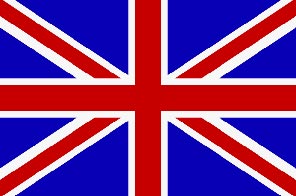Britain to appeal court order
LONDON: Britain said Friday it would appeal against a high court ruling ordering it to publish secret US intelligence documents related to the alleged torture of a former Guantanamo Bay inmate.
Foreign Secretary David Miliband said he was "deeply disappointed" by the judgment and warned it could cause the United States to limit the information it shared with Britain in the future.
"The government is deeply disappointed by the judgment handed down today by the High Court which concludes that a summary of US intelligence material should be put into the public domain against their wishes," Miliband said.
"We will be appealing in the strongest possible terms."
The high court ruling concerned whether to release US intelligence information concerning former Guantanamo detainee Binyam Mohamed, who claims he was tortured and accuses the British authorities of collusion.
Mohamed, who was born in Ethiopia but moved to Britain in 1994, was arrested in Pakistan in 2002 before being taken to Morocco and Afghanistan, where his lawyers say the torture occurred.
He was taken to the US detention camp at Guantanamo Bay in 2004 and released in February this year.
Miliband rejected the "extremely serious allegations" about Mohamed's treatment and reiterated Britain's opposition to torture, but said these claims were being dealt with by police.
He said the "fundamental question" was not the information itself but the risks its publication posed to intelligence-sharing arrangements.
"I've very happy for the documents to be published -- but not by us, by the Americans," he told Sky News television.
In a statement responding to the court ruling, he explained: "The US will not prejudice its own intelligence if it perceives that this intelligence may be disclosed at the order of a foreign court or otherwise.
"It remains my assessment that the consequence of the court's judgment today, if left unchallenged, will be a restriction on what is shared with us."
The US intelligence was contained in seven paragraphs that were edited out of a judgment about Mohamed last year at the British government's request, but judges John Thomas and David Lloyd Jones reversed this decision Friday.
"As the risk to national security, judged objectively on the evidence, is not a serious one, we should restore the redacted paragraphs to our first judgment" in August 2008, they said.






